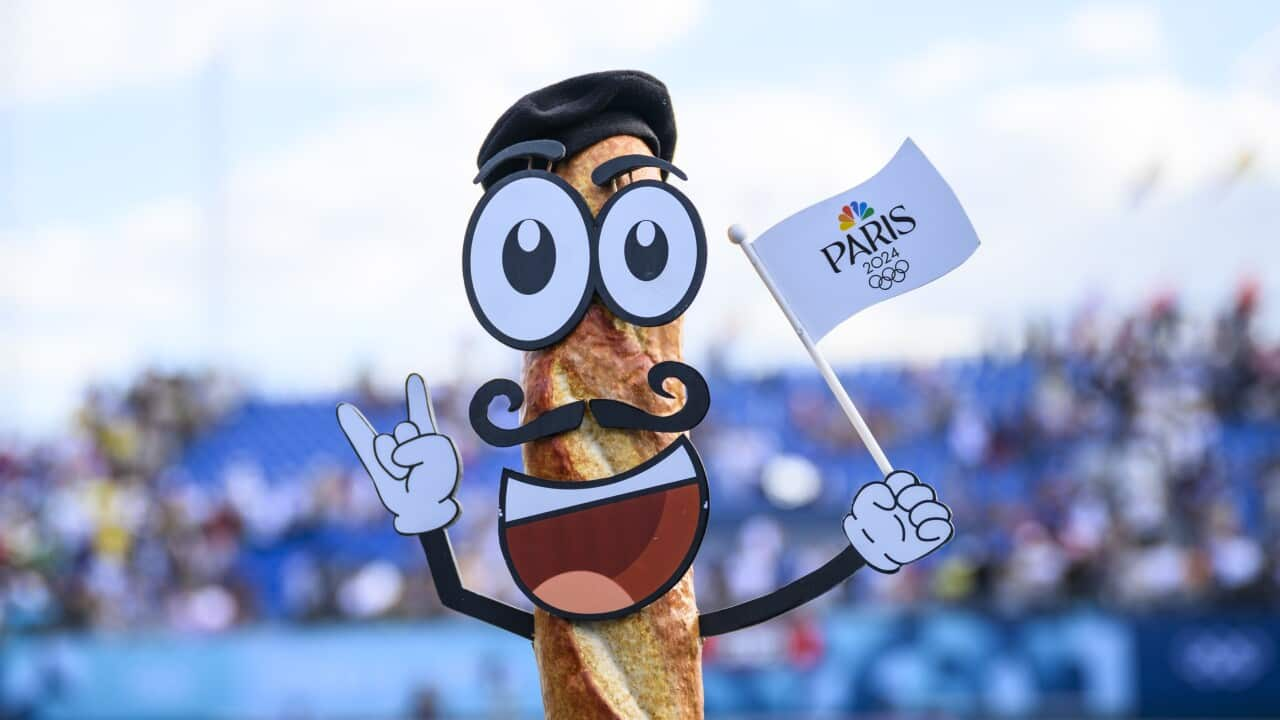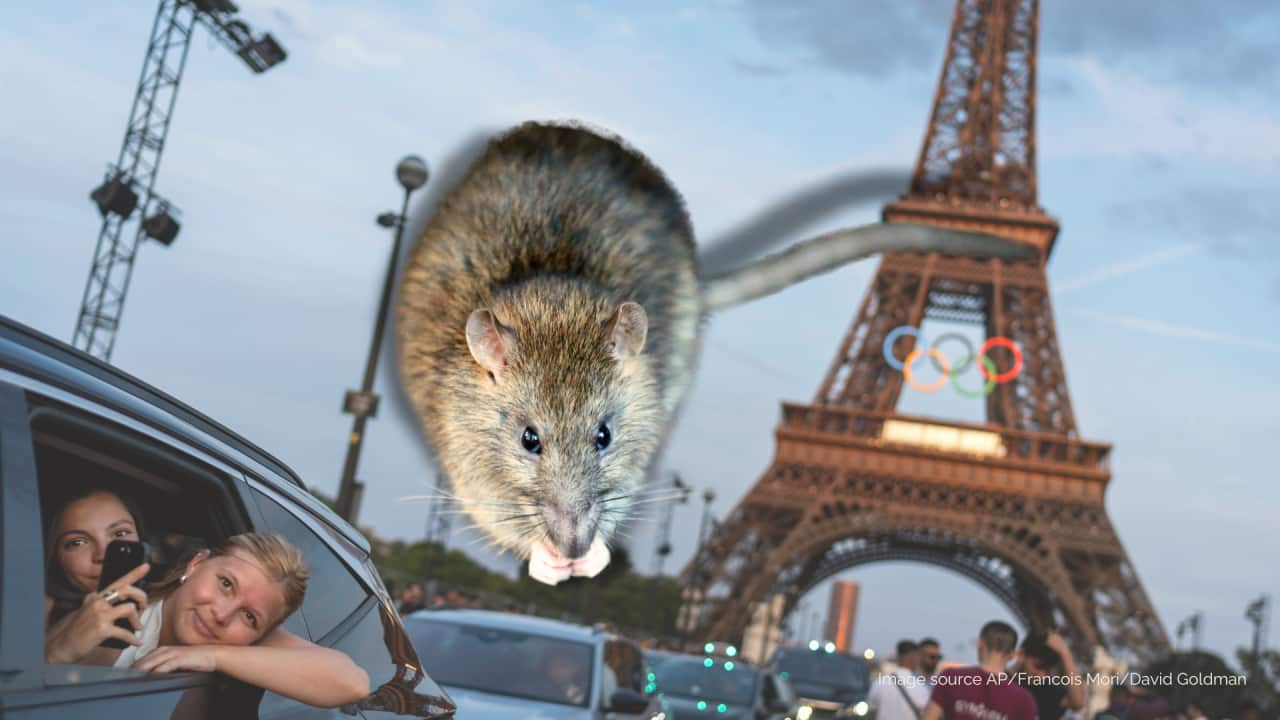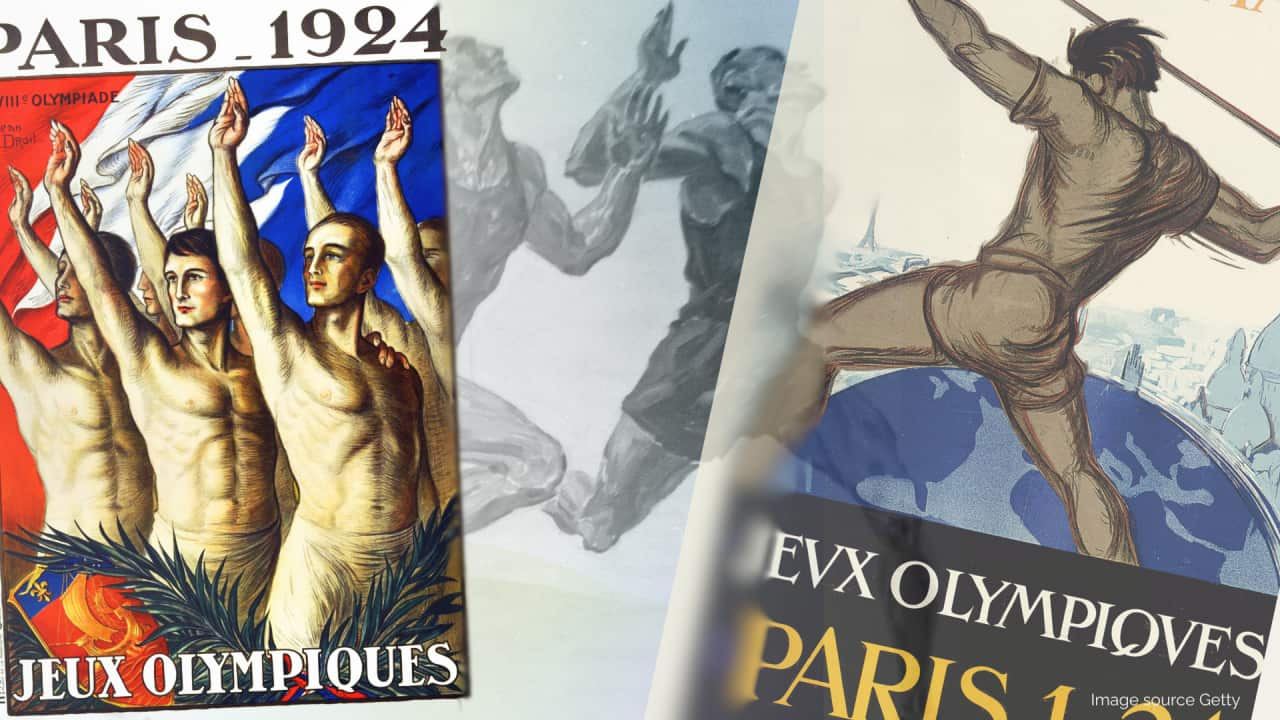Key Points
- Paris mayor Anne Hidalgo says she intends to keep the Olympic rings on the Eiffel Tower.
- The decision has been criticised by the descendants of the tower's namesake, Gustave Eiffel.
- The Eiffel Tower is part of a UNESCO World Heritage Site.
Paris' mayor has said she wants the Olympic rings to remain on the Eiffel Tower permanently.
The five interlocking rings — which have represented the Olympic Games for more than a century — were installed on the Eiffel Tower before the 2024 Paris Olympics opening ceremony.
The giant logo on the famous tower has been a symbol of the Paris Olympics and Paralympics and a popular backdrop for selfies by visitors to Paris.
The rings were due be taken down after the Paralympics' closing ceremony on 8 September. But mayor Anne Hidalgo said in an interview over the weekend she intends to keep them on the tower.
The plan to keep the rings has triggered heated debate among Parisians and has been criticised by the descendants of the tower's namesake, engineer Gustave Eiffel.
The Association of Gustave Eiffel's Descendants said in a statement they were "delighted" to see the Eiffel Tower bear the rings during the 2024 Games.
However, they continued: "It does not seem appropriate to us that the Eiffel Tower, which has become the symbol of Paris and the whole of France since its construction 135 years ago, has the symbol of an outside organisation added to it in a permanent way, whatever its prestige."
The association's chairman Olivier Berthelot-Eiffel, a great-great-grandson of Eiffel, who designed and built the tower, told the Agence France-Presse that the family did not see any problem with the rings staying longer than the Paralympic Games, which wrap up on 8 September.
"But the Eiffel Tower should not become an advertising outpost. Anne Hidalgo should have said that she wanted to keep the Olympic rings, not that she had decided it, and then discussed the idea with the Paris council and relevant individuals," he explained.
France's culture minister Rachida Dati also cast doubt over the idea, saying the mayor would need to follow procedures protecting historic buildings.
"The Eiffel Tower is a protected monument, the work of an immense engineer and designer," Dati said in a statement.
Keeping Olympic rings on Eiffel Tower 'a mistake'
A petition on Change.org against keeping the Olympic rings on the Eiffel Tower had been signed by more than 27,000 people on Tuesday morning, with some critics pointing out the tower is part of a UNESCO World Heritage site.
"The Eiffel Tower has a history of 135 years and surpasses a sports and media event of 17 days," commented the SOS Paris group, which campaigns to protect Paris's landmarks and environment.
The chairperson of the association Friends of the Champ de Mars, the park around the Eiffel Tower, said the idea "needed to be the subject of a wider consultation".
Hidalgo had already announced her intention to retain some of the symbols of the Olympics, including the innovative cauldron placed in front of the Louvre museum, as well as statues used during the opening ceremony.
She told the Ouest-France newspaper on Saturday she wanted to keep the rings and: "the decision is up to me and I have the agreement of the IOC (International Olympic Committee)".
The IOC, a Switzerland-based non-profit, is highly protective of its logo, which it lends to major corporations in lucrative sponsorship deals.
"For me, this is a mistake," Paris MP Sylvain Maillard, from President Emmanuel Macron's centrist party, told France Bleu Paris radio of Hidalgo's idea.
"The Games were a very powerful moment, but the Eiffel Tower embodies something timeless."

The Olympic Rings on the Eiffel Tower have been a popular backdrop for selfies by visitors to Paris. Source: AAP / Charlie Riedel/AP
Eiffel Tower itself once the subject of protest
The 300m-high Eiffel Tower was built for the World's Fair of 1889, but was not without controversy.
Some satirists called the tower a "truly tragic street lamp" and a "high and skinny pyramid of iron ladders".
A letter addressed to the World's Fair director of works and signed by luminaries including the writers Guy de Maupassant and Alexandre Dumas Jnr said the tower was a threat to French art and history.
Two million people visited the tower during the World's Fair and it later became the most recognised symbol of Paris.












